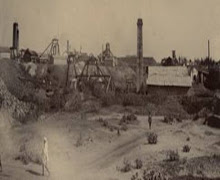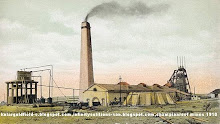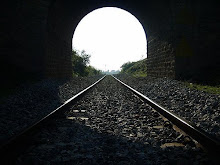
People in Karnataka’s Kolar district are seething with anger. On November 23, irrespective of political affiliations, they took to streets to protest against the Nuclear Power Corporation of India’s reported plan to dump hazardous waste from Kudankulam Nuclear Power Plant in Tamil Nadu in the disused mines at Kolar Gold Fields (KGF). Almost all the government offices, business houses, educational institutions and even cinema halls remained shut and life came to a standstill.
The protests started following media reports about India’s Solicitor General Rohinton Nariman informing the Supreme Court on November 21 that Kolar has been identified as the final long-term geological repository for long-life nuclear wastes. When the Supreme Court judges asked NPCIL officials where the hazardous spent fuels from Kudankulam would be transported to, the solicitor general said in the open court that the waste would be taken to the deep abandoned mine shafts at the KGF, according to media reports.
This stirred a hornets’ nest in Karnataka. Civil society organisations and political parties are up in arms. Chief minister Jagadish Shettar did not mince words when he came out openly against the Centre. “We’re shocked to know about this plan. The Central government has never consulted the state on this. We have conveyed people’s anxiety about their safety to the Centre. If the Central government goes ahead with the plan we will oppose it,” he said.
KGF is located 100 km from Bengaluru, Karnataka’s capital city. It is right in the heart of southern India where three big states, Karnataka, Andhra Pradesh and Tamil Nadu, intersect. This is a highly populated area. According to the 2011 population census, 1.54 million people live in Kolar district, and other two districts adjacent to KGF, Chittoor in Andhra Pradesh and Krishnagiri in Tamil Nadu have population of 4.2 million and 1.8 million respectively.
Besides, the elevation of Kolar is 3,981 metres while that of Thiruvannamalai, Vellore, Dharmapuri and Krishnagiri towns that lie just south of the Kolar area is between 168 m and 631 m. Quite naturally, people fear about the possible dangerous impacts of the hazardous radioactive nuclear waste that will be lying there for the thousands of years on the ground water of the low-lying areas Tamil Nadu, Andhra Pradesh and Karnataka.
Centre denies Kolar plan
S K Malhotra, spokesperson for the Department of Atomic Energy (DAE), has said that the department has no plans to dump any nuclear waste either from Kudankulam or any other nuclear plant anywhere near Kolar. V Narayanasamy, minister of state in Prime Minister’s Office has also denied the Kolar plan. In the wake of the protests in Karnataka, he gave a statement saying the nuclear waste would not be taken to KGF. He has repeated his earlier statement that the chances of getting nuclear wastes from the Kudankulam plant were very few and it would be recycled in the plant itself.
“I had spoken to Central minister K H Muniyappa (who hails from Kolar district) and also discussed with seni¬or officials of my department. On behalf of the department, I firmly say uranium waste will not be taken there.”
Affidavit contradicts denial
But the affidavit filed by Ashok Chauhan, executive director of NPCIL, on November 7 in the Supreme Court contradicts Malhotra and Narayanasamy. The affidavit has clearly stated that a long-term deep geological repository (DGR) has been developed in one of the Kolar mines. It states, “ research and development work (for DGR) has been in progress for over three decades… the initial focus of work in the eighties centered mainly on setting up generic underground research laboratories in one of the abandoned mines in India and resulted in the development of an underground chamber in Kolar gold mine located in South India.”
In fact, the underground research laboratory in Kolar was opened in 1964 mainly as a laboratory for conducting research on the atomic particle neutrino. According to DAE's own documents, the lab was shut down in 1992 following closure of the mines.
“If Kolar was never in the reckoning, then where did Nariman get this idea from? Who is speaking the truth and who is not?” asks S P Udayakumar of the People’s Movement Against Nuclear Energy (PMANE), which is spearheading the agitation against Kudankulam power plant. “All we can deduce from this culture of nuclear deception is that KGF is going to be the nuclear killing fields of India.” The atomic energy department must share the waste depository studies with the local public and the state government, he adds.
PMANE points out that the DAE has made an ambitious plan of generating 40,000 MW of nuclear power in the next 15 years but it lacks a fool-proof and well thought out strategy for spent-fuel storage and clear and concrete plans for long-term high-level waste disposal. There is apprehension among civil society groups and political parties all nuclear roads may finally lead to Kolar, and when all the planned nuclear plants in the country come up, Kolar may become the nuke dumpyard of the country.
“If our governments, scientists and technocrats have not managed to clean up the dangerous Bhopal waste that has been lying there for the past 28 years, how are they going to convince us about Kolar?” asks Udayakumar.
Date: Nov 26, 2012




















